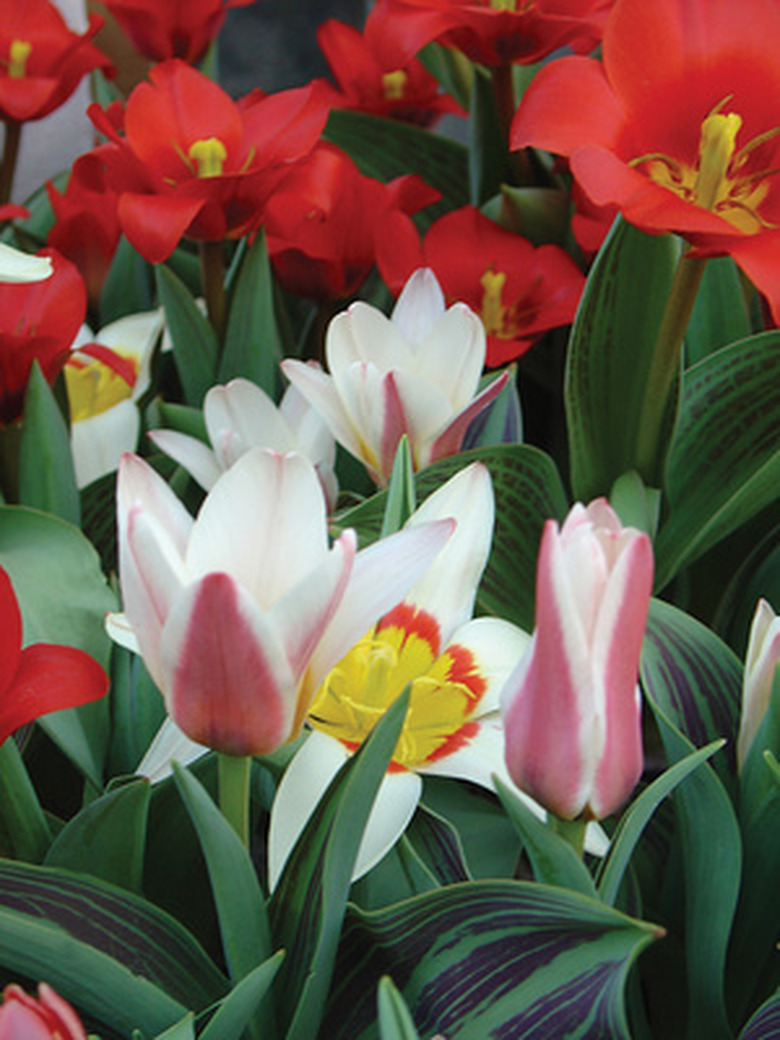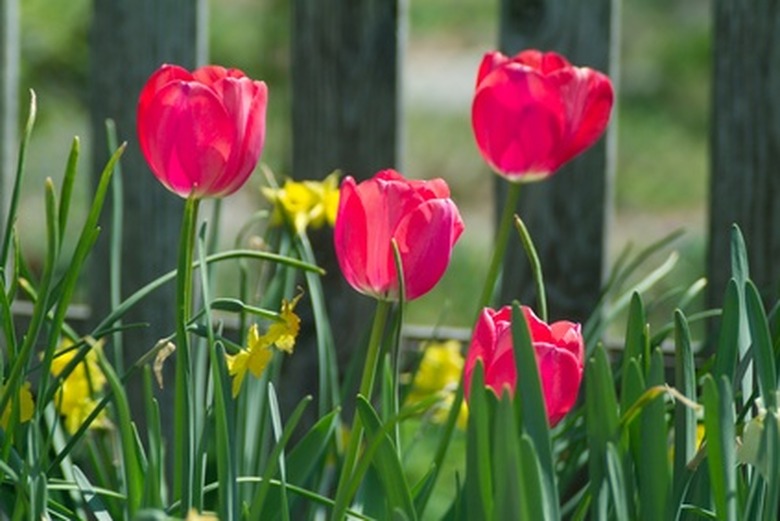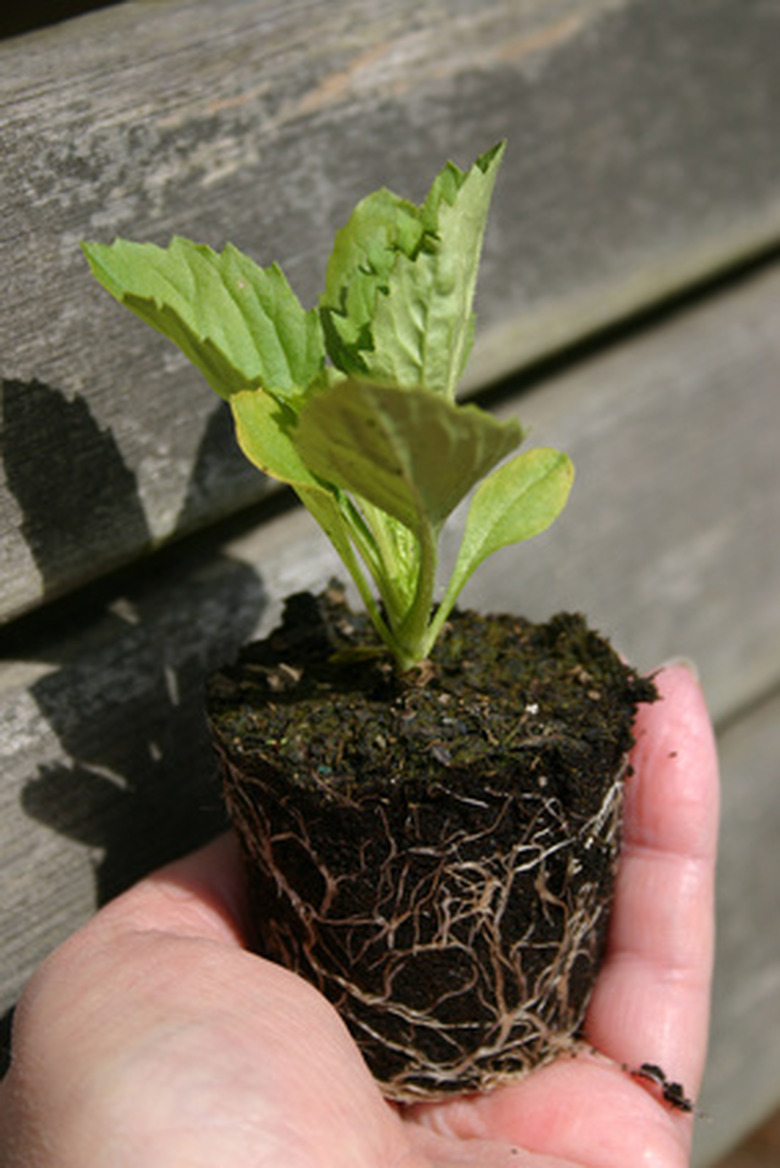Bulbs Vs. Seeds
Bulbs and seeds can both provide a stunning display of colorful flowers that come back year after year. Bulbs are almost foolproof and give quicker results, but are somewhat more expensive. Planting perennial flowers from seed can mean waiting up to two years before you see blooms. However, seed may only cost a few dollars and allows you to choose from a wider variety of types and colors of flowers.
Types of Bulbs
A bulb is the winter food storage system for a plant, and it allows the plant to get an early start in the spring. The most commonly planted flower bulbs are the early-spring favorites: crocuses, tulips and daffodils. Some plants people refer to as having bulbs aren't true bulbs; botanically they are corms (for example gladiolus) or rhizomes (such as lily-of-the-valley). But since you purchase, plant and care for these the same as you would a true bulb, the distinction is only really of interest to experts.
- Bulbs and seeds can both provide a stunning display of colorful flowers that come back year after year.
- However, seed may only cost a few dollars and allows you to choose from a wider variety of types and colors of flowers.
Choosing Bulbs to Plant
Spring-flowering bulbs are planted in the fall, while summer flowering bulbs can be planted in the spring. Decide what bulbs you want by determining what colors and types of flowers will fit in with your garden's design and characteristics. You also need to take into consideration the height and flowering time of the different bulbs, for instance by planting snowdrops and crocuses at the front edge of a flower bed and daffodils and tulips at the back.
Buying and Planting Bulbs
You can buy bulbs from your local garden center, or by mail-order from large nurseries–which will probably have a much wider selection from which you can choose. If you buy bulbs from a garden center, check the packaging for any damp patches or mold that could indicate the bulbs have rotted. Most bulbs need full sun and well-drained soil, but follow the planting instructions on the packaging for each individual type of bulb. Pay particular attention to how deep to plant the bulbs; this information will also be on the package. Generally, larger bulbs such as tulips or daffodils should be planted two to three times the length of the bulb, while tiny bulbs such as crocus are planted more shallow.
- Spring-flowering bulbs are planted in the fall, while summer flowering bulbs can be planted in the spring.
- Most bulbs need full sun and well-drained soil, but follow the planting instructions on the packaging for each individual type of bulb.
Growing Perenials from Seed
Growing perennial flowers from seed takes a little more skill and patience, but gives you a wide choice of colors and varieties of plants. Be sure to find out what USDA Hardiness Zone you live in, and check that any seeds you buy are suitable for your zone. If you are looking for early spring color, try moss phlox (Phlox subulata) or pasque flower (Pulsatilla vulgaris). To get the best selection, order seeds in winter from a reputable seed company.
Starting and Transplanting Seeds
Most types of seeds will need to be started indoors several weeks before you intend to plant them outside. Follow the instructions on the seed packet and use a good-quality potting mix. Remember that perennials will probably not flower the first year you plant them out, so be sure to mark each seeding in your flower beds with an identification tag. A layer of dried leaves as mulch is a good way to protect young perennials during their first winter.
- Growing perennial flowers from seed takes a little more skill and patience, but gives you a wide choice of colors and varieties of plants.
- Remember that perennials will probably not flower the first year you plant them out, so be sure to mark each seeding in your flower beds with an identification tag.




